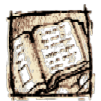
FAIR is a non-profit organization dedicated to providing well-documented answers to criticisms of the doctrine, practice, and history of The Church of Jesus Christ of Latter-day Saints.
| Answers portal |
| Primary Sources |

|
|
FAIR Wiki: |
Contrary to many Church critics—who often come out of a late-19th, Latin-based Christianity that is unaware of some of the ancient currents in Christian thought—theosis has a long history in Christian thought.
| Theosis and related at FAIR |
| Theosis and related at FAIR |

FAIR is a non-profit organization dedicated to providing well-documented answers to criticisms of the doctrine, practice, and history of The Church of Jesus Christ of Latter-day Saints.
We are a volunteer organization. We invite you to give back.
Donate Now